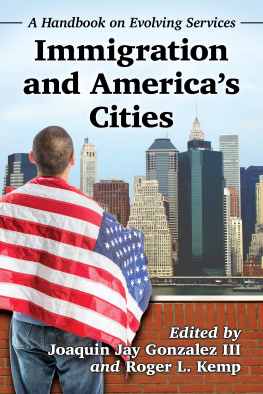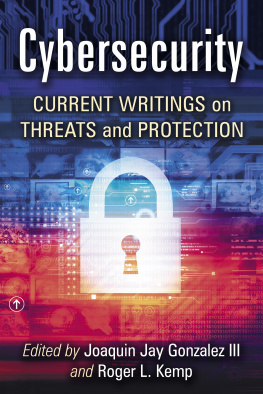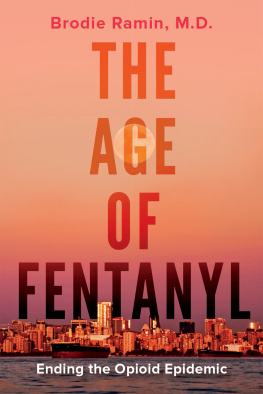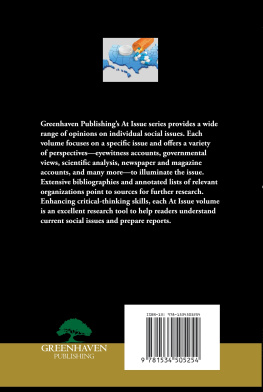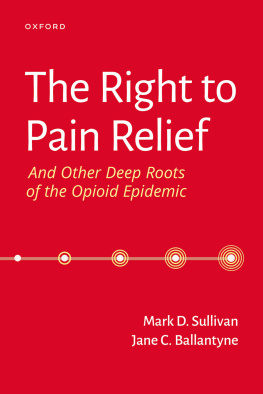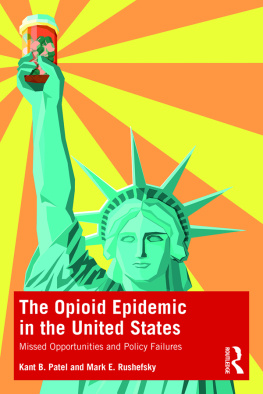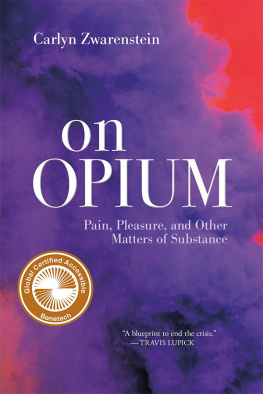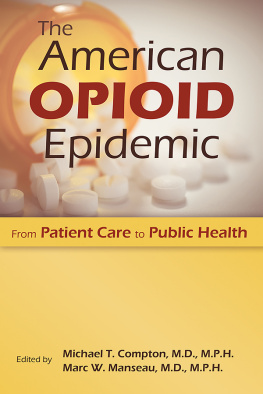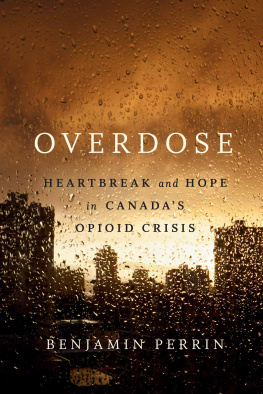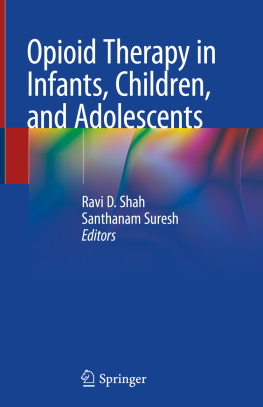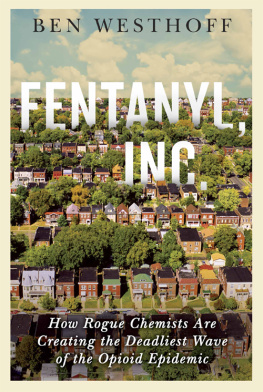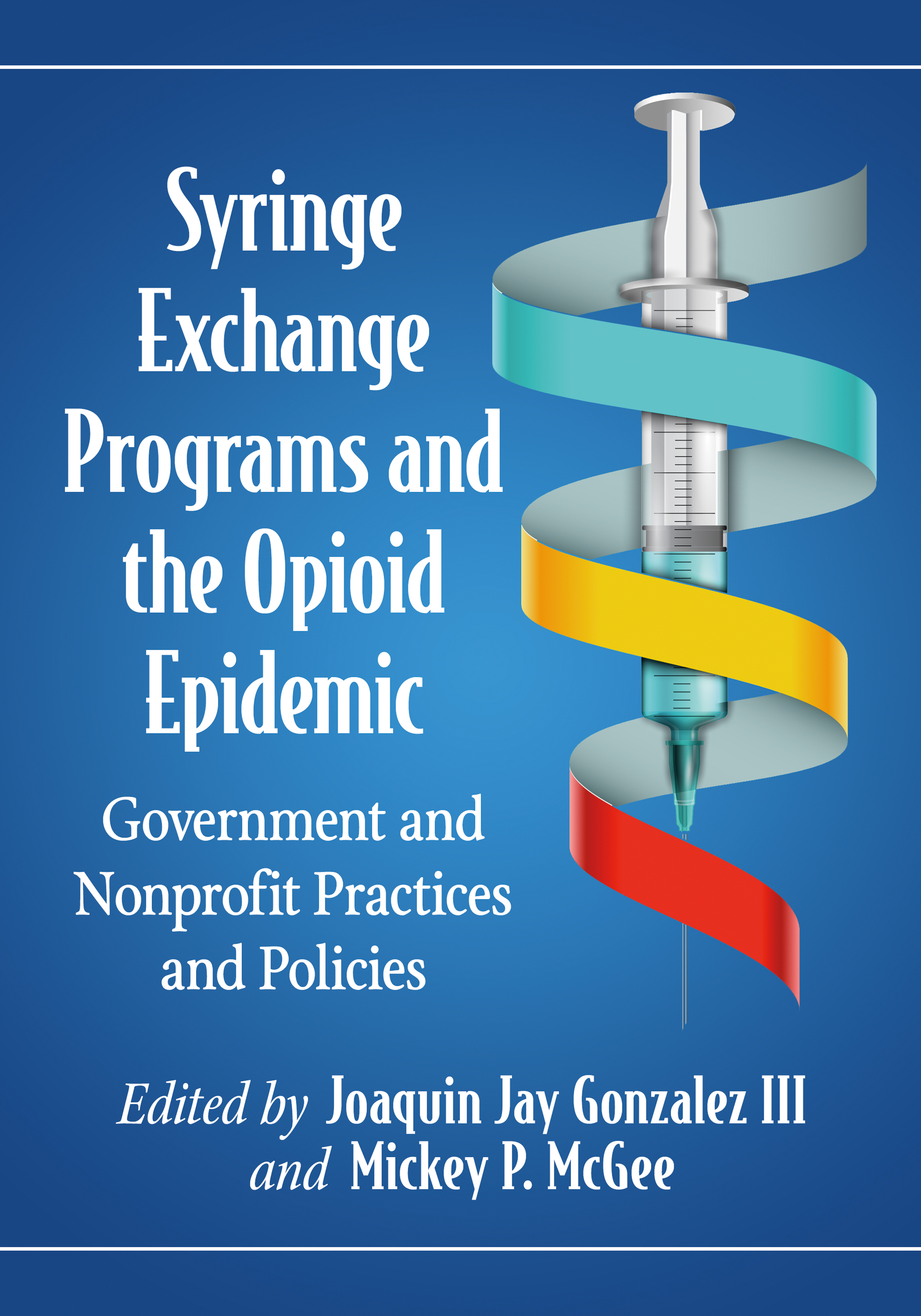Syringe Exchange Programs and the Opioid Epidemic
Also of Interest and from McFarland
Climate Change and Disaster Resilience: Challenges, Actions and Innovations in Urban Planning , edited by Joaquin Jay Gonzalez III, Roger L. Kemp and Alan R. Roper (2022) Keeping Schools Safe: Case Studies and Insights , edited by Joaquin Jay Gonzalez III and Roger L. Kemp (2022) Brownfields Redevelopment: Case Studies and Concepts in Community Revitalization , edited by Joaquin Jay Gonzalez III, Tad McGalliard and Ignacio Dayrit (2021) Cities and Homelessness: Essays and Case Studies on Practices, Innovations and Challenges , edited by Joaquin Jay Gonzalez III and Mickey P. McGee (2021) Senior Care and Services: Essays and Case Studies on Practices, Innovations and Challenges , edited by Joaquin Jay Gonzalez III, Roger L. Kemp and Willie Lee Brit (2020) Veteran Care and Services: Essays and Case Studies on Practices, Innovations and Challenges , edited by Joaquin Jay Gonzalez III, Mickey P. McGee and Roger L. Kemp (2020) Legal Marijuana: Perspectives on Public Benefits, Risks and Policy Approaches , edited by Joaquin Jay Gonzalez III and Mickey P. McGee (2019) Cybersecurity: Current Writings on Threats and Protection , edited by Joaquin Jay Gonzalez III and Roger L. Kemp (2019) Eminent Domain and Economic Growth: Perspectives on Benefits, Harms and New Trends , edited by Joaquin Jay Gonzalez III, Roger L. Kemp and Jonathan Rosenthal (2018) Small Town Economic Development: Reports on Growth Strategies in Practice , edited by Joaquin Jay Gonzalez III, Roger L. Kemp and Jonathan Rosenthal (2017) Privatization in Practice: Reports on Trends, Cases and Debates in Public Service by Business and Nonprofits , edited by Joaquin Jay Gonzalez III and Roger L. Kemp (2016) Immigration and Americas Cities: A Handbook on Evolving Services , edited by Joaquin Jay Gonzalez III and Roger L. Kemp (2016) Corruption and American Cities: Essays and Case Studies in Ethical Accountability , edited by Joaquin Jay Gonzalez III and Roger L. Kemp (2016)
Syringe Exchange Programs and the Opioid Epidemic
Government and Nonprofit Practices and Policies
Edited by Joaquin Jay Gonzalez III and Mickey P. McGee

McFarland & Company, Inc., Publishers
Jefferson, North Carolina
ISBN (print) 978-1-4766-7311-0
ISBN (ebook) 978-1-4766-4110-2
Library of Congress and British Library cataloguing data are available
Library of Congress Control Number 2021061136
2022 Joaquin Jay Gonzalez III and Mickey P. McGee. All rights reserved
No part of this book may be reproduced or transmitted in any form or by any means, electronic or mechanical, including photocopying or recording, or by any information storage and retrieval system, without permission in writing from the publisher.
Front cover image 2020 Abert/Shutterstock
Printed in the United States of America
McFarland & Company, Inc., Publishers
Box 611, Jefferson, North Carolina 28640
www.mcfarlandpub.com
Jay and Mick dedicate this book to those suffering from pain, suffering, and opioid addiction as well as their families, friends, and caregivers.
Acknowledgments
We are grateful for the support of the Mayor George Christopher Professorship at Golden Gate University as well as GGUs Pi Alpha Alpha Chapter and ICMA Student Chapter. We appreciate the encouragement from Dean Amy McLellan and our wonderful colleagues and students at the Edward S. Ageno School of Business, the Department of Public Administration, the Executive MPA Program, and the Doctor of Business Administration Program.
Our heartfelt thank you! goes to the contributors listed in the back section and the individuals, organizations, and publishers below for granting permission to reprint the material in this volume and the research assistance. They all expressed support for practical research and information sharing that benefits our citizens, communities, and cities.
American Society for Public Administration
Brenda J. Bond-Fortier
California Department of Public Health
Centers for Disease Control and Prevention
City and County of San Francisco
Coral H. Gonzalez
Don C. Des Jarlais
Elise B. Gonzalez
Golden Gate University Library
H. Daniel Xu
Hazelden Betty Ford Foundation
International City/County Management Association
Jaime Teeter Householder
Jenna Tyler
Karen Garrett
Kaiser Health News
Mark Kennedy
Michelle Hong-Gonzalez
National Association of County and City Health Officials
National Institute on Drug Abuse
National League of Cities
New York State Department of Health
PA Times
Paul C. Prevey
PM Magazine
San Francisco AIDS Foundation
San Francisco Department of Public Health
San Francisco Health Commission
Sarah Sweeney
Substance Abuse and Mental Health Services Administration
theconversation.com
U.S. Centers for Disease Control and Prevention
U.S. Department of Health and Human Services
U.S. Drug Enforcement Agency
U.S. Environmental Protection Agency
U.S. Food and Drug Administration
U.S. Substance Abuse and Mental Health Services Administration
University of San Francisco Library
Utah Department of Health
Table of Contents
Preface
Syringe Exchange Programs and Safe Injection Services are outside-the-box interventions increasingly being used by governments, nonprofits, and citizens to combat a very serious issue that is percolating in tandem with Americas burgeoning opioid epidemic and lingering COVID-19 pandemic. Because of the focus on the bigger picture, people who inject drugs (PWID) are often hidden and marginalized. And yet, according to the U.S. Centers for Disease Control and Prevention, there are close to a million Americans who inject a drug annually.
The increase in substance use has resulted in parallel increases in injection drug use across the U.S. The most commonly misused injected drug ranges from stimulants to painkillersmore specifically, heroin and fentanyl, but may include amphetamines, buprenorphine, benzodiazepines, barbiturates, cocaine, and methamphetamine. The increase has caused not only large increases in opioid deaths, but also thousands of viral hepatitis infections and is threatening progress made in HIV treatment and prevention.
The numbers reported by the U.S. Department of Health and Human Services are staggering:
130+ : People died every day from opioid-related drug overdoses
47,600 : People died from overdosing on opioids
81,000 : People used heroin for the first time
2 million : People misused prescription opioids for the first time
10.3 million : People misused prescription opioids in 2018
2 million : People had an opioid use disorder in 2018
808,000 : People used heroin in 2018
15,349 : Deaths attributed to overdosing on heroin (in 12-month period ending February 2019)
32,656 : Deaths attributed to overdosing on synthetic opioids other than methadone (in 12-month period ending February 2019)
That is why an innovative solution is needed. According to the American Civil Liberties Union, Syringe Exchange Programs (also known as Needle Exchange Programs), when placed alongside other approaches, have helped mitigate the opioid epidemic by:


